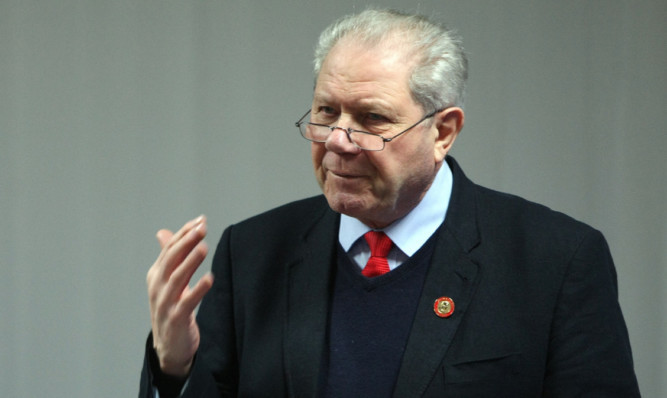David Cameron has suffered some notable setbacks since announcing his June 23 referendum on Europe, the most obvious being the London mayor Boris Johnson’s decision on Sunday to back Brexit.
That, as Boris supporters said, may have electrified the No campaign but there have been other, smaller niggles for the Prime Minister. One of these is the position, both official and unofficial, of the SNP on Europe.
While the Conservatives are bitterly divided over the issue they at least fall into two clear camps: in or out. The Nationalists, on the other hand, are split into several splinters.
For backers of the British union, this is heartwarming because separatists at war with each other are separatists weakened. But what effect, if any, will it have on the June ballot?
Nicola Sturgeon appears convinced she, if not her party, can influence voters north and south of the border. She has announced she will go to England and make speeches to persuade the electorate of the case for staying in.
She hopes, no doubt, to recreate the enthusiasm that greeted her presence in London before last year’s general election, when voters there, encountering her for the first time, found her refreshing beside tired old Cameron, Nick Clegg and Ed Miliband.
However, a long year in politics later and I expect most people in the south have heard enough from Scottish Nationalists trying to hijack debates with their single issue obsession.
The party’s 56 MPs have not exactly covered themselves in glory and it’s unlikely people outside Scotland are desperate to hear their leader’s views on Europe.
Besides, those views will be greeted with suspicion following Sturgeon’s interview on the Andrew Marr Show over the weekend when, in saying she wanted to remain in Europe, she gave her supporters a good reason to vote to leave.
If the UK backs Brexit that would “almost certainly” trigger a second independence referendum, she said.
Scots are far more pro-Europe than the rest of Britain and there would, therefore, be an “inescapable” shift in public opinion towards secession if Scotland was forced to leave the EU against its will.
This, as well as sounding like she was talking up an “out” vote, presumes the Scottish are much more in favour of the EU than the English but the evidence for this is shaky. Polls have found very slight differences between our attitudes, although Scotland is marginally more pro-Europe.
The First Minister claims to know the minds of Scottish voters when she says many people, including those who voted against independence in 2014, would vote to break up Britain to secure EU membership.
This exhibits typical Nationalist arrogance towards Scotland. Not only did a significant majority opt to keep the UK intact 18 months ago but recent polls have found an even greater majority do not want another constitutional battle.
Just over a week ago, an opinion poll revealed that only 36% of voters wanted a new independence referendum and 90% did not consider it was a priority for the Scottish elections in May.
If this was not plain enough for Sturgeon, a former leader of her party, Gordon Wilson, warned there would be a high “irritability factor” among voters over a second referendum in Scotland.
Wilson, I think, is at least with Sturgeon on Europe but another former leading light in the party, Jim Sillars, is campaigning to leave.
Sillars, some may remember, was the maverick who also thought it a good idea to declare unilateral independence after the defeat of Yes Scotland in 2014.
For some Nationalists, the fight for a separate Scotland is the only fight worth having, although not all are as open about it as Sillars.
It’s easy to see the quandary for Sturgeon; if she is successful in helping to keep us in Europe there will be no “trigger” for a second independence referendum.
So although she will have done her bit to preserve the status quo for the UK, she will have also pushed back the prospect of Scottish separation, at least in the eyes of vast numbers of new SNP members, who thought Scotland would be on its own by now.
To makes matters more awkward, she is on the same side as Cameron over Europe, which is not her favourite place to be.
In fact, she has urged him not to make any appearances in Scotland, fearing perhaps that the similarities between them will be embarrassing in the run-up to the Holyrood election.
I do think, though, that her support for an “in” vote is 100% genuine not because she loves the EU but because she fears an independence referendum she knows she can’t win.
